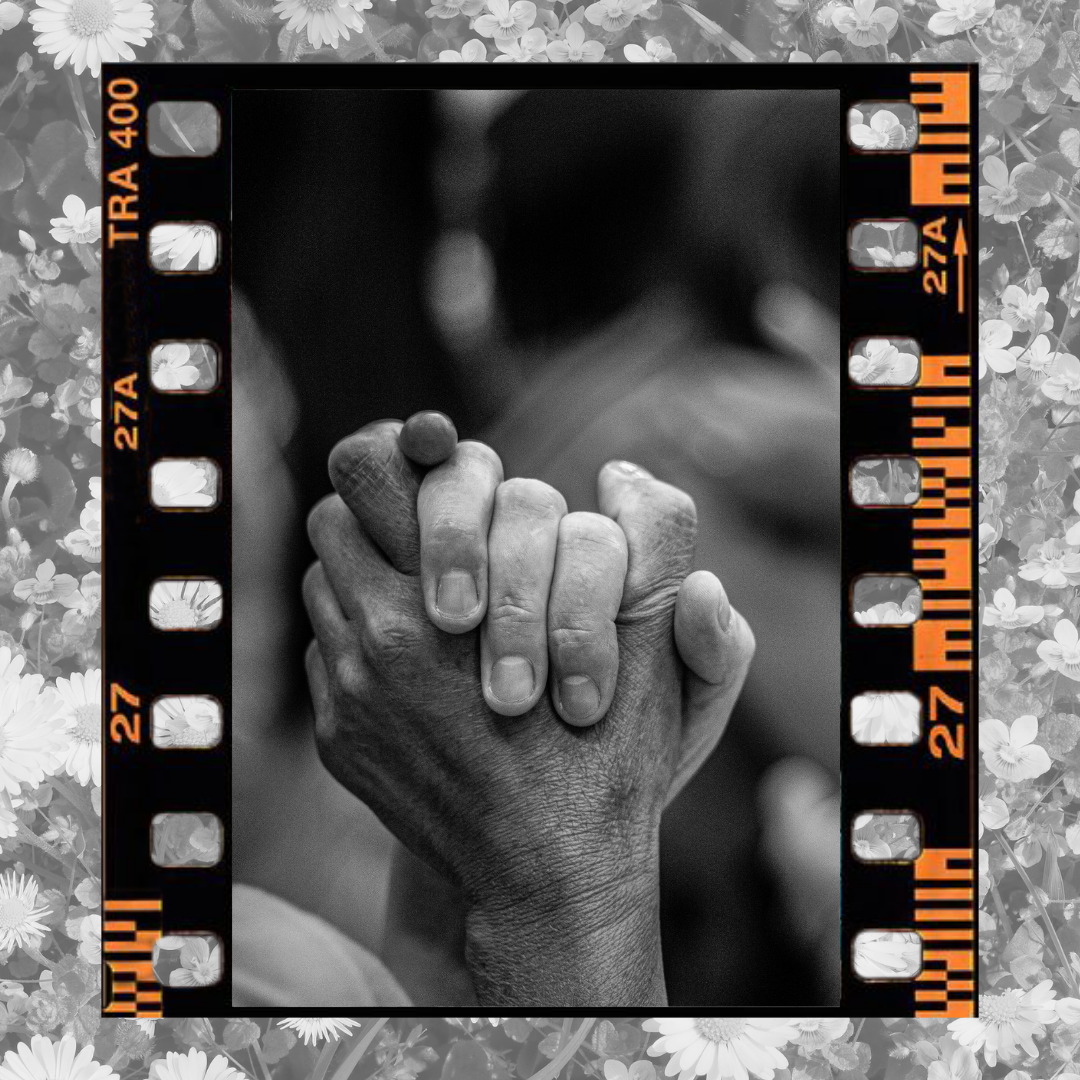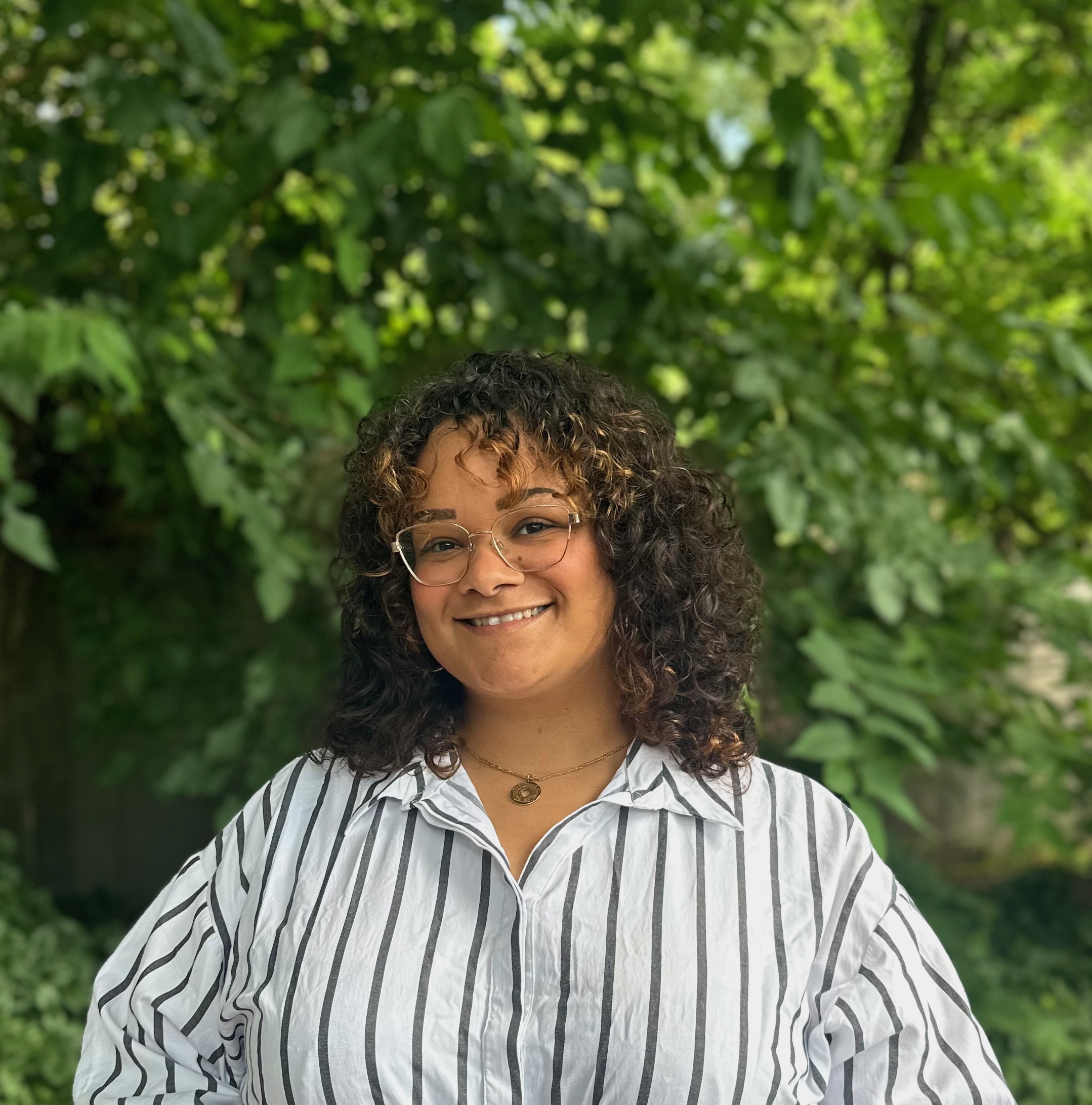Dying Well, Living Fully: Emotional Transformation as Fuel for Liberation in Life and Death
Taking on the difficult but life-changing, world-altering work of healing yourself, healing your relationship with your emotions, is fundamental to materializing any semblance of change. If we don’t heal ourselves, we cannot heal this movement, cutting ourselves off from building any lasting momentum or relationships outside the peace and security space.

November 24, 2024
In an unexpected turn of events, I’m now trained to help people die better. I’m what you call a death doula. How I got here is a story for another day. But in becoming a death doula, I’ve had to seriously reckon with the profound importance of death in life. I’ve often anguished over how anyone could find love, hope, or create visions for a better world when death is everywhere all the time. Unexpectedly, it was turning to death, and awakening to the revolutionary act of dying a good death, that helped me to awaken to how life and death shape each other and, in turn, us.
Truthfully, I’ve never experienced the death of someone close to me growing up. My experiences with death came from a childhood cat I loved dearly, and the steady stream of horror movies I was watching at far too young an age—allegedly the cause of some well-written but worrisome stories that were later discussed at parent-teacher conferences.
It wasn’t until I focused my passions on educating the public about the humanitarian and environmental impacts of nuclear weapons that I understood what true horror, true death, looked like. To this day, I can never bring myself to look away; with so much government denial of causing such widespread, time-traveling waves of death, I feel a duty to bear witness to their pain, their suffering.
When I began my death doula program, I struggled at first to understand that death could offer us wisdom, blessings. I could see no blessing in death, no nuggets of wisdom to be passed on; all I saw each day were the ways death was being weaponized for profit, power, prestige. The ways our government abandoned thousands upon thousands of people to rehearse their death each day, to helplessly watch as their loved ones, too, were forced to suffer the consequences of corrupted souls greedy for global nuclear domination. I could only see the world through the billions of death-worlds being created around the world daily in order to grease the wheels of the global death machine.
I find myself often, especially in the last year, constantly feeling swallowed by grief, fear, and anger as the most oppressed among us bear the brunt of the last grasps of dying empires and their cronies.
On death-worlds
Cameroonian historian, political theorist, and public intellectual Achille Mbembe first discussed death-worlds in his 2003 article which brought shape to the concept of necropolitics, the politics of death. In his article, Mbembe asserts that “the ultimate expression of sovereignty” is the power to dictate who gets to live and who gets to die. Mbembe goes on to discuss how the world that we live in, the world of sovereignty, inherently requires violating the prohibition against killing, forcing participants (read: countries) to constantly refine their methods of killing to be the most lethal, as Vice President Kamala Harris so bluntly characterized it.
The domain of life in which power has taken complete control is what Michel Foucault describes as biopower. Biopower functions through countries constantly dividing humans into groups and sub-groups based on causal biological features; and through this process is how we arrive at racism, according to Foucault. Foucault examines the inextricable links between biopower and racism because it’s so much easier to carry out mass killings when you no longer perceive your ‘enemy’ as a human being.
The natural progression of a society obsessed with killing and new and innovative ways to conduct said killing creates what Mbembe calls “death-worlds” for those deemed disposable, unworthy of a good death. There’s no need for zombie movies when we’re surrounded by the living dead: communities so horrifically targeted, exploited, and abandoned that their quality of life is akin to death.
Nuclear weapons are the ultimate weapon of mass death, enshrined on an altar and worshiped by the devout followers of the religion of death. There exists no greater, more persistent killing force than the coveted atom bomb. Therefore, there exists no greater political tool for achieving absolute control over life and death. Nuclear weapons represent the apex of total domination; the global death machine is undergirded by the invisible but always present awareness of potential nuclear annihilation.
Beyond coercion, the mining, production, development, maintenance, testing, and use of nuclear weapons create a unique category of death-worlds, the nuclear death-world. In the nuclear death-world, its victims are haunted by the specter of death on a molecular level that can transcend time, showing up in the future to haunt future generations.
There are countless (nuclear) death-worlds everywhere. For as long as this current white supremacist, patriarchal, transphobic, imperialist system exists, so too will the many (nuclear) death-worlds they spawn. But we are not powerless to instigate the demise of such a rotten, fragile, evil system and to build a just, sustainable, joyful, resilient world in its place.
On the revolutionary power of dying a good death: Dying well, living fully
Activist, teacher, author, and farmer Stephen Jenkinson, MTS, MSW, makes the claim that to die a good death requires the living of a good life, and to live a good life we must radically transform how our society is structured. I agree.
Fundamentally, we cannot thrive in a system whose foundation is rotted to the core, built on the death and oppression of the masses for the power, profit, and prestige of a select few. Under a system that seeks to predetermine our deaths for us, there’s no greater revolutionary act than to live and die on your own terms; to forge in the embers of dying empires a life and community abundant in love, compassion, honesty, reciprocity, accountability, joy, hope, and imagination.
As emergent strategy teaches us, this system is a byproduct of us–of our beliefs, choices, actions. And as Grace Lee Boggs always reminded us: in transforming ourselves, we transform the world. Committing to dying a good death initiates the transformative process of taking the action needed to help you live a good life. The impacts of your actions will naturally ripple out, helping to heal each other and the world; in healing ourselves, we can destroy the death worlds and build worlds abundant in life.
How emotional transformation fuels liberation
In a world drowning in death, toxicity, grief and pain, how do we transform ourselves to transform the world?
How do we break down the rich soil that is our collective grief into the compassionate, radical love needed to nourish our movements for abolition?
How do we shed the heavy weight of fear, what adrienne maree brown asserts is “the most consistent and lingering quality of colonization,” that this white supremacist, patriarchal, transphobic, imperialist, capitalist, neocolonial hellscape is so desperately trying to smother us in—and allow ourselves to imagine beyond our wildest dreams what a liberated world can and will look like?
How do we transform our righteous anger stemming from our seemingly endless (seemingly being the operative word here, as we have the power to end all of that which does not serve all of us) wells of grief and terror into a discipline of hope that propels us forward on the path to liberation?
In undertaking lessons from emergent strategy and now death, I find myself asking these questions as I try to make sense of how I can embody the abolition movements I belong to—that of nuclear weapons (and the military industrial complex at which these weapons sit at the heart of: prisons, police, patriarchy and borders.) What I’ve learned from the many Black, Indigenous, queer women and non-binary people before me is that every revolution starts within; the path to liberation begins in you and me.
Often, these death-worlds cloud that path, shrouding us in confusion and fear in hope that we may be stuck forever in the clutches of the global death machine. How we can fight back, how we can clear the path so we may see which way is liberation, is through that journey of self-transformation.
The first stage of the self-transformation process is largely invisible, personal—it’s transforming your relationship to your emotions. So much of our actions, our beliefs and choices, are fueled by our emotions and how healthy of a relationship we have with them. In such a broken, death-addled world, so many of us are either completely severed from our emotions as an act of self-preservation or so overwhelmed by them that we cannot think straight. We’re all just walking around with giant, festering wounds inflicted upon us by the global death machine, displacing our pain and trauma onto others and perpetuating the cycle of harm. I mean, just look at how quickly and often some are willing to dispose of or attack someone else in the nuclear community—these actions are not coming from a place of healing or accountability. I’m guilty of it, too.
Taking on the difficult but life-changing, world-altering work of healing yourself, healing your relationship with your emotions, is fundamental to materializing any semblance of change. If we don’t heal ourselves, we cannot heal this movement, cutting ourselves off from building any lasting momentum or relationships outside the peace and security space. Abolition requires us to practice the liberated future we’re fighting for, and practice it every day. Healing ourselves and our relationships with one another is how we can practice a nuclear abolitionist future each day—by honing the compassionate, honest, reciprocal, just, sustainable, intentional, adaptive, creative and resilient practices we plan to carry with us into this new world, negating any need or desire for such weapons of mass death.
Over the next few months, and in collaboration with my dear friend Jackie Waight, I’ll be exploring how transforming our relationships with our emotions—specifically anger, grief, love, fear, imagination, and hope—is central to embodying our movements and to building the liberated, abolitionist worlds we long for. I extend my deepest gratitude for those of you that choose to go on this journey with me; Mariame Kaba taught me everything worthwhile is done with others, and this is perhaps the most worthwhile journey we can take in our brief time on this beloved earth.
